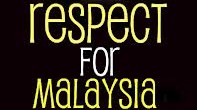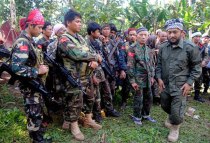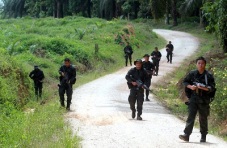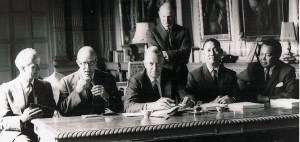by Bunn Nagara @http://www.thestar.com,my
After Sabah’s standoff is resolved, the intruders will need to reconcile with modern realities.
 IT is too easy to dismiss the Lahad Datu standoff as typical of Sabah’s labyrinthine intrigue. That would trivialise the rich history and cultural diversity of the state, besides mistaking a largely Philippine problem as being Sabah’s.
IT is too easy to dismiss the Lahad Datu standoff as typical of Sabah’s labyrinthine intrigue. That would trivialise the rich history and cultural diversity of the state, besides mistaking a largely Philippine problem as being Sabah’s.
True, anywhere else in Malaysia with a significant Tausug population deriving from the former Sulu Sultanate’s diaspora, like the Klang Valley, would be unlikely to experience the drama of the past couple of weeks.
But none of the events in Kampung Tanduo, near Lahad Datu in eastern Sabah, was predictable or inevitable. The former Sultanate occupied only a small portion of Philippine territory and an even smaller portion of Sabah’s.
And yet, the peculiar combination of north-eastern Borneo’s demography, geography, history and political heritage provides a probable backdrop to just such a standoff. How did it all begin this time?
 On February 9, nearly 100 Philippine nationals, several of them armed, arrived by boat to join a smaller group that had arrived earlier. They took over the village, claiming the area belonged to the Sultanate that they said they represented.
On February 9, nearly 100 Philippine nationals, several of them armed, arrived by boat to join a smaller group that had arrived earlier. They took over the village, claiming the area belonged to the Sultanate that they said they represented.
They also demanded recognition as the Royal Sulu Sultanate Army, as well as a meeting with an unnamed Malaysian leader. Malaysian authorities rejected both demands.
They further said they had come in support of Sabah’s Tausug population, alleging reports that following a Royal Commission of Inquiry into Sabah’s illegal immigrant communities, Tausugs would be deported.
Many locals would be surprised by the claim. Sabahan-Malaysian Tausugs, who prefer to be called Suluks, have long settled comfortably among Sabah’s three dozen or so ethnic groups.
Filipino Tausugs who arrived later as migrant workers, clinging more closely  to their “Tausug” roots, may face a different reality. But ethnic persecution hardly if ever surfaces in Sabah because of, not despite, its rich cultural diversity.
to their “Tausug” roots, may face a different reality. But ethnic persecution hardly if ever surfaces in Sabah because of, not despite, its rich cultural diversity.
 to their “Tausug” roots, may face a different reality. But ethnic persecution hardly if ever surfaces in Sabah because of, not despite, its rich cultural diversity.
to their “Tausug” roots, may face a different reality. But ethnic persecution hardly if ever surfaces in Sabah because of, not despite, its rich cultural diversity.
The annual lease payment of RM5,300 agreed in 1903, increased from RM5,000 agreed in 1878, was also said to be insufficient. Others said the territory should be returned to the late Sultan’s descendants anyway.
Although British and Sulu versions of the 1878 agreement differed slightly, the Sulu version was clear enough: “… hereby lease of our own free will and satisfaction … all the territories and lands … forever and until the end of time, all rights and powers which we possess over all territories and lands tributary to us …”
Both the Philippines and Malaysia would rather do without such disturbances that serve only as irritants to bilateral relations. As modern nation states, both countries have evolved well past an extinct sultanate.
But there are also differences.For Malaysia, the sovereignty and territorial claims of the former Sultan’s descendants are simply unacceptable. No such claims are negotiable.
The claimants argue that the sultanate’s territory had been leased only to Britain, with no agreement on incorporation into Malaysia. But their case is inconsistent.
Sabah, the former North Borneo, became a British protectorate from the late 19th century until it became a crown colony. It gained a brief period of independence before becoming part of the Malaysian Federation in 1963.
By then, the Cobbold Commission (above) had determined that a majority of people in Sabah and Sarawak favoured the formation of Malaysia. For a century the former Sultan’s descendants did not retake territory, but instead agreed to continue accepting the lease payment under the previous arrangements.
The Philippine government, which subsumed the sultanate’s authority in the four provinces of Mindanao, also took over the role of pressing the claim to Sabah. Despite being a republic that had abandoned all royal authority, Manila continued with the claim before, during and after Malaysia’s formation.
Although the Philippine claim has since become dormant if not extinct, Manila found it difficult to renounce it. It has become an object of nationalists eager to strike populist postures in domestic Philippine politics.
The issue has a different spin among the Moro or Philippine Muslim community in Mindanao, of which Tausugs are a part. Despite Malaysia’s key role in peace talks between the two main Moro separatist groups and the Philippine government, both groups are not necessarily in Malaysia’s corner.
The MILF (Moro Islamist Liberation Front) disagreed with the takeover of Kampung Tanduo, saying negotiations should have been the way. This wrongly presumed that the issue was negotiable for Malaysia.
The MNLF (Moro National Liberation Front) is an even more enthusiastic supporter of the armed intruders. But it should be more mindful of the implications involved.
Since the former sultanate covered the Philippine provinces of Basilan, Palawan, Sulu and Tawi-Tawi in the ARMM (Autonomous Region of Muslim Mindanao), and only an eastern part of Sabah, followers of the former Sultan should first settle differences of territorial authority with the MNLF and the MILF before venturing into Sabah. They should also settle differences with Manila over such issues as hegemony, usurpation and compensation.
Both the Philippines and Malaysia, as sovereign states that had subsumed and developed beyond the Sulu Sultanate, have successfully concluded various agreements bilaterally and multilaterally. Those agreements confirm mutual acceptance of their respective statehood in their present configuration.
Besides, the former Sultan and his descendants had consented to the terms of the agreement in return for the lease payment. So long as payment is still made, they are obliged to continue abiding by the agreement.
That would make any unilateral attempt to retake territory by force of arms illegal and unjustified. Whether Malaysia will seek to prosecute after a resolution of the standoff is another matter.





No comments:
Post a Comment
Note: Only a member of this blog may post a comment.